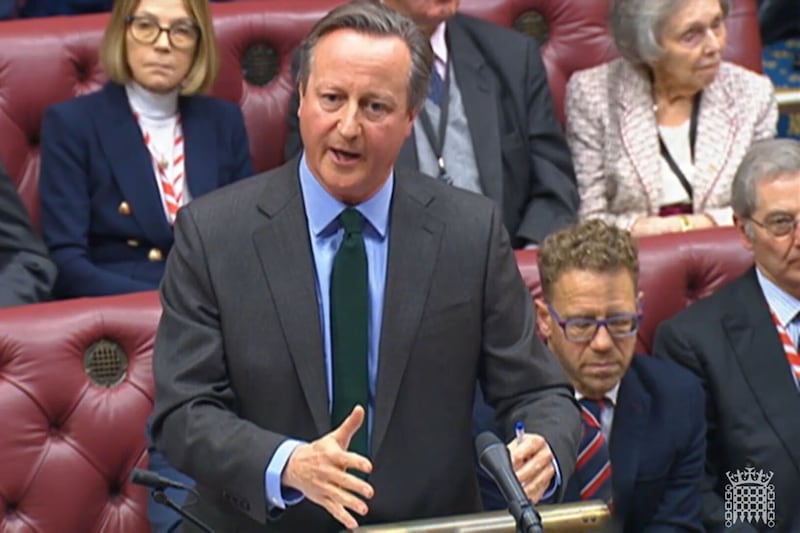THE TAOISEACH has said he continues to maintain a "professional" relationship with his UK counterpart in the face of continued British government agitation over the protocol.
Micheál Martin's language contrasts sharply with the warmth with which he spoke about Boris Johnson soon after becoming taoiseach.
When the two leaders met at Hillsborough Castle in August 2020, the Fianna Fáil leader's aides were keen to stress how well the pair got on. However, in the period since, the Tory leader has consistently sought to roll back on the commitments he gave as part of the Withdrawal Agreement, culminating with the expected tabling of legislation that aims to undermine elements of the Northern Ireland protocol.
Many observers believe that as a consequence of the UK government's actions Anglo-Irish relations are at their lowest point for more than 40 years.
When asked yesterday by The Irish News during his visit to the European Parliament about his relationship with Boris Johnson, the taoiseach was diplomatic.
"My relationship with the British prime minister continues to be a professional one," he said.
"I disagree with the approach the United Kingdom government has taken in respect of dealing with the protocol and its failure really to engage in a substantive way with the European Union, particularly with the commissioner Maros Sefcovic."
Mr Martin said he had made it clear that substantive negotiations with Brussels was the "most effective way to move things forward" on the protocol.
"He [Boris Johnson] will find the European Union to be flexible – it has already been flexible – but we don’t detect that sense of engagement with the UK government," the taoiseach said.
"I’ve also made it very clear that unilateral action is not conducive to good relations internationally and unilateral action undermining an agreement people solemnly entered into is not good practice."
The Fianna Fáil leader urged the prime minister and British government to engage with European Union.
In his address to the European Parliament, Mr Martin said Britain's plans to act unilaterally over the protocol would be "deeply damaging" and mark a "historic low point".
He said the UK government's proposed legislation would be "to the benefit of absolutely no-one".
"I have said many times that there are solutions to practical problems under the protocol if there is a political will to find them but that requires partnership. It requires the UK government to engage with good faith, seriousness, and commitment," he said.
"Unilateral action to set aside a solemn agreement would be deeply damaging – it would mark a historic low point, signalling a disregard for essential principles of laws which are the foundation of international relations and it would, quite literally, be to the benefit of absolutely no-one."
The taoiseach, who on Tuesday evening unveiled a bust of late SDLP leader John Hume in the European Parliament, said that without a "spirit of partnership" there would have been no peace process.
"Without trust, without engagement, without a willingness to see things from the point of view of others, there would have been no Good Friday Agreement, no quarter-century of peace in Northern Ireland in which young people have been able to grow and to flourish as themselves," he said.
"All of us in positions of leadership owe it to them not to treat lightly what was so hard-won."
The taoiseach's remarks came as Northern Ireland Minister Conor Burns said the legislation will be published soon.
He said the protocol has led to "ridiculously excessive" checks on goods moving within the UK's internal market.
"We recognise the attractiveness of the protocol and the place that leaves Northern Ireland in, but the reality is that we have now got ridiculously excessive checks on goods that are moving within the United Kingdom's internal market that will never go near the Irish Republic, that are absolutely no threat whatsoever to the integrity of the single market," Mr Burns told RTÉ.
He also rejected Mr Martin's assertions that the EU has and will continue to be flexible in its negotiations.
"That is not our lived experience from the conversations that we've been having with the EU over very many months," the Conservative minister said.








